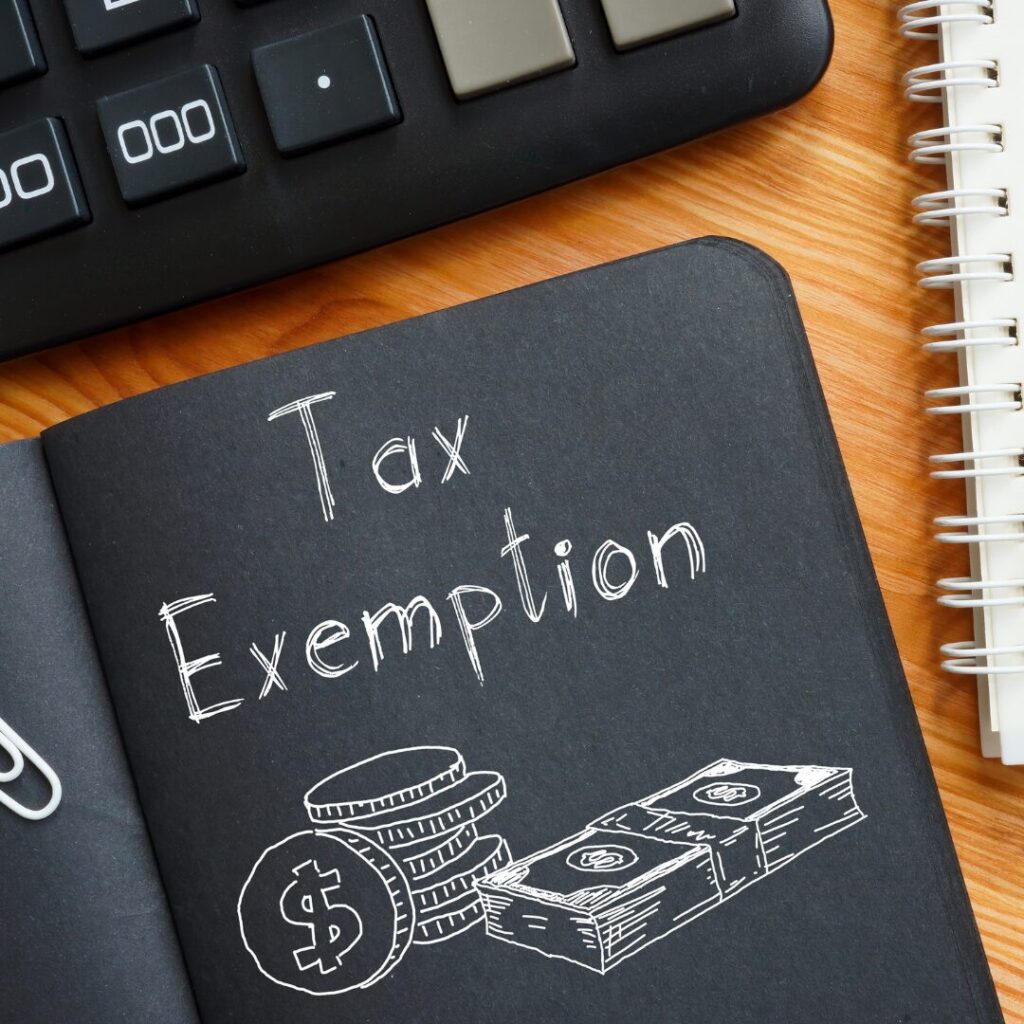The 80g donation tax exemption is a provision in the Indian Income Tax Act that allows individuals and businesses to claim tax deductions for their charitable contributions. By understanding and maximizing this tax benefit, you can reduce your taxable income and support the causes you care about. This comprehensive guide will explore the intricacies of the 80g tax exemption, including eligible donations, calculation methods, and strategies to optimize your tax savings.
Whether you’re an individual taxpayer or a business owner, the 80g donation tax exemption offers a valuable opportunity to lower your tax liability while making a positive impact on your community. By exploring the details of this tax provision and leveraging the available strategies, you can maximize your tax savings and channel more resources towards the causes that matter most to you.
Key Takeaways
- The 80g donation tax exemption allows individuals and businesses to claim tax deductions for their charitable contributions.
- Understanding the eligibility criteria and calculation methods is crucial to maximizing your tax savings.
- Timing your donations and selecting the right charitable organizations can further optimize the tax benefits.
- Avoiding common mistakes, such as claiming ineligible donations or providing incorrect documentation, is essential to ensure the successful approval of your deduction claim.
- Combining the 80g tax exemption with other tax-saving strategies can further enhance your overall tax savings.
Understanding the 80G Donation Tax Exemption
Section 80G of the Income Tax Act in India is a crucial provision that allows taxpayers to claim a deduction on their taxable income for donations made to certain approved charitable organizations and funds. This section was introduced to encourage individuals and businesses to contribute to social welfare and philanthropic causes, ultimately benefiting the community at large.
What is Section 80G of the Income Tax Act?
Section 80G of the Income Tax Act enables taxpayers to claim a tax deduction for their charitable contributions, subject to specific eligibility criteria. By understanding and properly utilizing this tax exemption, individuals and businesses can reduce their overall tax liability while supporting the causes they care about.
Eligible Donations and Institutions
To be eligible for the 80g tax exemption, donations must be made to charitable institutions and funds that have been approved by the Indian government. These include 80g tax exemption-eligible organizations such as religious, educational, and medical institutions, as well as non-profit organizations engaged in various social welfare activities. By directing your eligible donations to these charitable institutions, you can maximize the tax benefits available to you.
Benefits of Claiming 80G Tax Deductions
By claiming the 80g donation tax exemption, you can enjoy significant benefits in terms of your tax liability and the positive impact on the causes you support. The primary advantage is a reduction in your taxable income, which can lead to a lower overall tax burden. This means that a portion of your charitable contributions can be offset against your taxable income, resulting in a lower tax bill.
Reduced Taxable Income
When you claim the 80g tax deduction, the eligible donations you make to approved charitable causes are deducted from your total taxable income. This effectively lowers the amount of income that is subject to taxation, ultimately resulting in a reduced tax liability. By maximizing your 80g tax deductions, you can keep more of your hard-earned money and allocate it towards personal or business expenses, as well as further charitable giving.
Promoting Charitable Causes
The 80g donation tax exemption not only benefits you in terms of tax savings, but it also plays a crucial role in supporting charitable causes and the organizations that work tirelessly to make a positive impact on society. By claiming the deduction, you are incentivized to contribute to these worthy causes, ultimately helping to address pressing social, environmental, and community-based needs.
Calculating Your 80g Donation Tax Exemption
To calculate the 80g donation tax exemption, you need to consider the qualifying donation amounts and any applicable limitations and restrictions. The deduction is typically limited to 10% of your adjusted gross income (AGI) or a maximum of ₹1 lakh, whichever is lower. This means that if your AGI is ₹10 lakhs, the maximum 80g tax deduction you can claim is ₹1 lakh.
Qualifying Donation Amounts
The 80g tax exemption applies to donations made to approved charitable organizations and funds. These donations can include cash, goods, or even services rendered. It’s important to keep detailed records of your donations, including the recipient organization, the amount or value, and the date of the contribution. This documentation will be crucial when filing your tax return and claiming the 80g deduction.
Limitations and Restrictions
While the 80g donation tax exemption offers significant tax benefits, there are some limitations and restrictions to be aware of. The deduction is capped at 10% of your AGI or ₹1 lakh, whichever is lower. Additionally, certain types of donations may not qualify for the 80g deduction, such as contributions to political parties or organizations that do not have the necessary approvals from the government.
It’s important to consult with a tax professional or refer to the latest guidelines from the Income Tax Department to ensure that your donations meet the qualifying criteria and that you are claiming the maximum 80g tax exemption allowed by law.
80g donation tax exemption: Step-by-Step Guide
Claiming the 80g donation tax exemption is a straightforward process that involves two key steps: collecting donation receipts and filing for the deduction. By following this step-by-step guide, you can ensure that you maximize your tax savings while supporting the charitable causes you’re passionate about.
Collecting Donation Receipts
The first step in claiming the 80g donation tax exemption is to obtain proper documentation for your charitable contributions. Whenever you make a donation, be sure to request a receipt from the eligible 80g donation tax exemption charitable organization. This receipt should include details such as the date of the donation, the amount contributed, and the name of the organization.
Keeping meticulous records of your donation receipts is crucial, as you’ll need to submit them when filing your income tax return. Organize these receipts in a way that makes it easy to reference them during the tax filing process.
Filing for the Deduction
Once you have collected all your donation receipts, it’s time to file for the 80g donation tax deduction. This is typically done when you submit your annual income tax return, where you’ll need to provide the necessary documentation to claim the tax exemption.
In the appropriate section of your tax return, you’ll need to enter the total amount of your eligible donations and the corresponding 80g donation receipts for the year. Be sure to follow the instructions provided by the tax authorities carefully to ensure your claim is processed correctly.
Maximizing Your Tax Savings
To maximize your tax savings through the 80g donation tax exemption, it’s important to consider the timing of your donations and the choice of charitable organizations. By strategically managing these factors, you can unlock the full potential of this valuable tax benefit and support the causes you care about most.
Timing Your Donations
The timing of your donations can have a significant impact on the amount of tax savings you can claim. Consider making your donations towards the end of the financial year, as this will allow you to calculate your exact tax liability and determine the optimal donation amount to maximize your 80g deduction. This approach ensures that you don’t over-donate and end up with unused tax credits.
Choosing the Right Charitable Organization
Not all charitable organizations are eligible for the 80g tax exemption. When selecting the recipient of your donations, be sure to choose organizations that have been approved by the government and are registered under Section 80G of the Income Tax Act. This step is crucial, as donations made to non-eligible entities will not qualify for the tax deduction. By carefully researching and vetting the charitable organizations, you can ensure that your donations are effectively utilized and contribute to the causes that are most meaningful to you.
Common Mistakes to Avoid
When claiming the 80g donation tax exemption, it’s essential to be aware of common mistakes that can lead to the rejection of your deduction claim. These include ineligible donations and incorrect documentation.
Ineligible Donations
One of the most common 80g tax exemption mistakes is claiming deductions for donations that do not qualify under the Income Tax Act. This can include contributions to organizations that are not approved or recognized as eligible for the 80g exemption. It’s crucial to thoroughly research and verify the status of the charitable institution before making a donation.
Incorrect Documentation
Proper documentation is essential when claiming the 80g donation tax exemption. Incorrect documentation, such as missing or incomplete receipts, can result in the rejection of your deduction claim. Ensure that you obtain a valid receipt from the charitable organization, which should include details like the organization’s name, registration number, and the amount and date of your donation.
Conclusion
The 80g donation tax exemption is a powerful tool that allows individuals and businesses to reduce their tax liability while supporting important charitable causes. By understanding the eligibility criteria, calculating the deduction, and following the proper procedures, you can optimize your 80g donation tax exemption and make a meaningful impact on the organizations and causes you care about.
The key takeaways from this guide are:
- The 80g donation tax exemption provides a tax deduction for eligible charitable contributions, up to 10% of your adjusted gross income or ₹1 lakh, whichever is lower.
- To claim the deduction, you must ensure that your donations are made to approved charitable organizations and that you have the necessary documentation.
- By timing your donations strategically and choosing the right charitable organizations, you can maximize your tax savings through the 80g exemption.
- Avoiding common mistakes, such as claiming ineligible donations or submitting incorrect documentation, is crucial to successfully claiming the 80g donation tax exemption.
By leveraging the 80g donation tax exemption, you can contribute to the causes you believe in while also reducing your overall tax burden. Remember to consult with a tax professional to ensure you are making the most of this valuable tax benefit.
Additional Tax-Saving Strategies
While the 80g donation tax exemption is a powerful tool for reducing your tax burden, it can be further optimized when combined with other tax-saving strategies. By considering these additional approaches, you can maximize your overall tax savings and support the causes you care about even more effectively.
Combining with Other Deductions
Don’t limit yourself to the 80g donation tax exemption alone. Explore opportunities to combine it with other deductions and credits available to you, such as the Section 80C deduction for investments in approved instruments or the Section 80D deduction for medical insurance premiums. By strategically utilizing multiple tax-saving provisions, you can significantly reduce your taxable income and enhance your overall tax savings.
Tax write off for Businesses
If you own a business, you can take advantage of the tax write-off benefits associated with 80g donations. Businesses can claim the full amount of their charitable contributions as a deductible expense, which can help offset their taxable income. This makes the 80g donation tax exemption particularly beneficial for companies looking to support social and philanthropic causes while also optimizing their tax planning.
FAQ
What is Section 80G of the Income Tax Act?
Section 80G of the Indian Income Tax Act allows taxpayers to claim a deduction on their taxable income for donations made to certain approved charitable organizations and funds. This provision was introduced to encourage individuals and businesses to contribute to social welfare and philanthropic causes.
What types of donations are eligible for the 80G tax exemption?
Donations made to registered charitable institutions, religious organizations, educational institutions, and government funds are generally eligible for the 80G tax exemption. However, there are specific eligibility criteria and restrictions that must be considered.
How can I benefit from the 80G donation tax exemption?
By claiming the 80G donation tax exemption, you can enjoy significant benefits in terms of reduced taxable income and promoting the causes you care about. The primary advantage is a reduction in your overall tax liability, as a portion of your charitable contributions can be offset against your taxable income.
How do I calculate the 80G donation tax exemption?
To calculate the 80G donation tax exemption, you need to consider the qualifying donation amounts and any applicable limitations or restrictions. The deduction is typically limited to 10% of your adjusted gross income (AGI) or a maximum of ₹1 lakh, whichever is lower.
What is the process for claiming the 80G donation tax exemption?
To claim the 80G donation tax exemption, you need to collect and retain donation receipts from the eligible charitable organizations. These receipts should be submitted along with your tax return filings to claim the deduction.
How can I maximize my tax savings through the 80G donation tax exemption?
To maximize your tax savings, consider the timing of your donations and choose the right charitable organizations that align with your philanthropic goals. Proper planning and documentation can help you optimize the 80G tax deduction.
What are some common mistakes to avoid when claiming the 80G tax exemption?
Common mistakes to avoid include claiming ineligible donations, failing to maintain proper documentation, and not following the prescribed procedures for the 80G tax exemption. Ensuring compliance with the regulations is crucial to avoid any issues with your deduction claim.
Can I combine the 80G donation tax exemption with other tax-saving strategies?
Yes, you can further optimize your tax savings by combining the 80G donation tax exemption with other deductions and strategies, such as investing in tax-saving instruments or claiming business-related tax write-offs.




